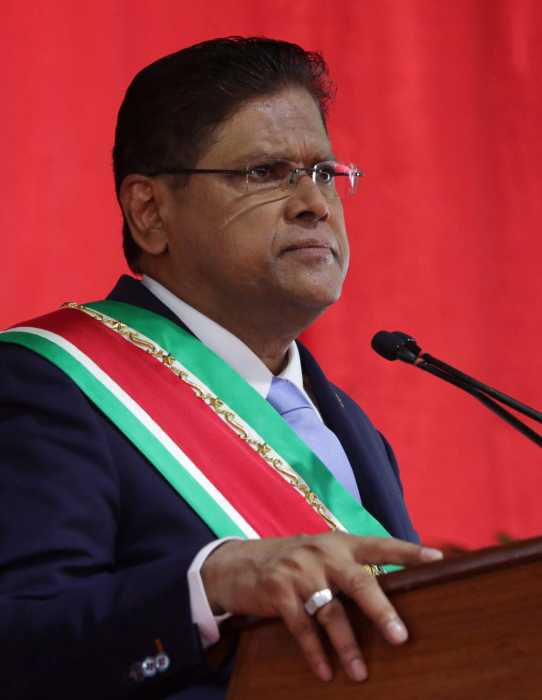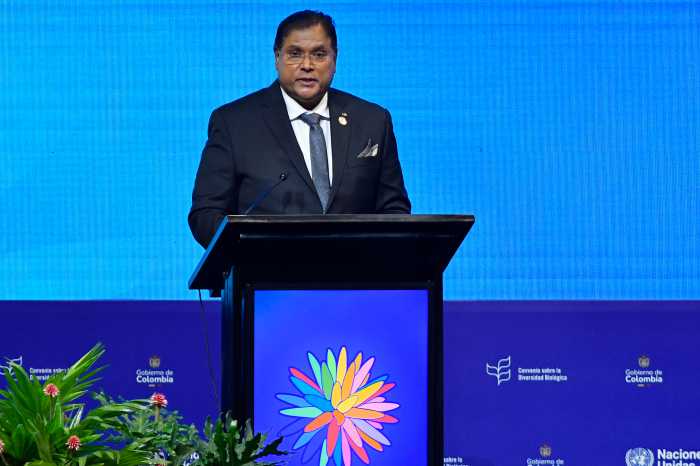Not appearing to take cues from the backlash politically insensitive administrations have received in the Middle East in recent weeks, Suriname’s former military strongman last week handed out top awards to the men who helped him overthrow the country’s elected government 31 years ago on Feb. 25, despite the fact that many locals regard the events from that period as still a raw, open wound.
More than a dozen officers and non-commissioned ranks who used the pretext of a row between soldiers and the Henck Aaron administration over recognition of a labor union for the military to strike, received the “bearer of the Golden Star of the Revolution” award from former coup leader and current President Desi Bouterse, for participating the 1980 coup that sent political shock waves in the Americas.
The awards were handed out in the Dutch-speaking Caribbean Community (CARICOM) member-state (pop. 485,000), despite the fact that some of those still alive and politically active today, the 64-year-old Bouterse included, are currently on trial for the mass murder of 15 government opponents in December 1982 and inspite of criticism from the main opposition parties. The trial is taking place at a military base across the way from Paramaribo, the capital city.
Elected to the Surinamese presidency last summer, Bouterse said he felt duty-bound to honor the men who stood with him to change a system that was rife with racial mistrust between Blacks, Indians, Javanese and other groups, as he called for unity in the country bordering Guyana, Brazil and French Guiana.
“We have to capture this historic day. It is indelibly immortalized,” said Bouterse at a public ceremony, promising locals that his administration will “always side with the people. We will work hard for prosperity and welfare for all,” he said.
The opposition National Party of Suriname (NPS), a key member of the previous Nieuw Front coalition that ran the country for more than 10 years until last year’s general elections, said it disagreed with Bouterse’s interpretation of Feb. 25 as a day of liberation and celebration, suggesting instead that it be regarded as a day of mourning and reflection for the sadness the coup and the seven years of military rule brought on the country.
“National mourning for all victims who made the coup and the destruction of the achievements and the relationships that our nation guarantees and perspectives offered in the young Republic of Suriname. Reflection to reinforce the notion that promoting the progress of our nation for present and future generations, only possible in a climate of freedom and respect for human dignity,” the NPS said in a statement.
It also complained about the period of military rule, complete with curfews and the curtailment of other freedoms, the shelling of police stations by the military, the blowing up of two radio stations and harassment of political opponents, among other negatives of the period.
























